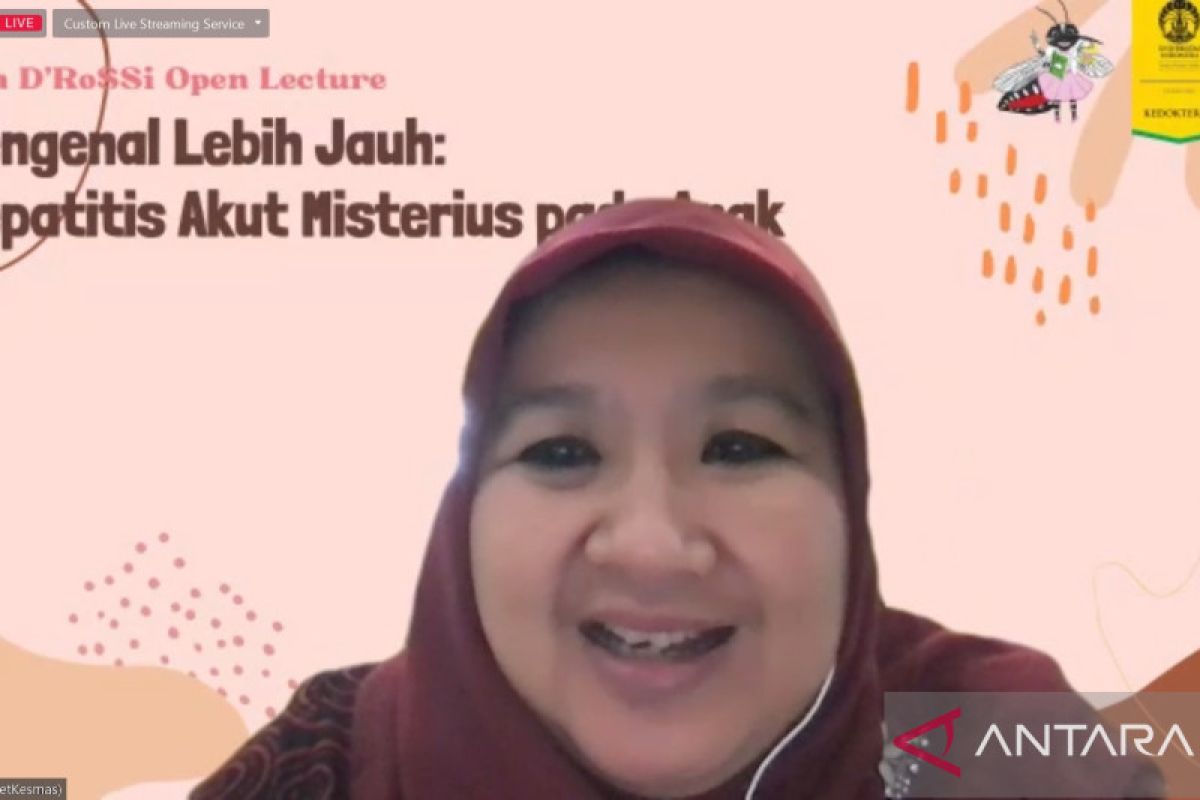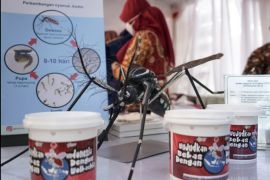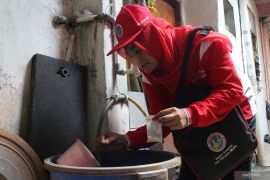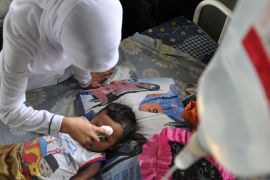"Our clinical symptom (in Indonesia) is fever. While the most common symptom abroad (in the UK) is jaundice. So, if we look at Indonesia, the most common symptoms are fever, nausea, and vomiting," said secretary of the ministry’s Directorate General of Health, Siti Nadia Tarmizi, at a webinar on "Knowing More about Mysterious Acute Hepatitis in Children,” which was accessed from here on Friday.
Based on data from the Health Ministry, as of 4 p.m. local time on June 23, 2022, the cumulative number of suspected cases of acute hepatitis was 70, which were reported from 21 provinces across Indonesia. The 70 cases comprised 16 probable cases, 14 pending cases, and 40 discarded cases.
Tarmizi said that the most common symptoms reported by mysterious acute hepatitis patients were fever (76.7 percent); nausea, vomiting, and jaundice (66.7 percent); and loss of appetite (50 percent).
The symptoms were different from those reported in other countries, such as the UK. In the UK, the most common symptoms were jaundice (66.8 percent), vomiting (57.6 percent), lethargy (48.6 percent), diarrhea (43.1 percent), and change in stool color to pale (42.7 percent).
"Meanwhile, in Indonesia, there is only one positive (case) of adenovirus, based on a rectal PCR swab examination," Tarmizi informed.
Related news: Indonesia records 70 suspected acute hepatitis cases: ministry
To prevent a mysterious acute hepatitis epidemic, Tarmizi said that the Health Ministry, with all relevant parties such as the Indonesian Pediatrician Association (IDAI), is continuing to promote awareness about the disease through educational information communication (KIE).
Information disseminated through the activity covers symptoms, case management, as well as health facilities and laboratories that can be used as referral services in the regions.
"There are two things that we are campaigning for, including the gastrointestinal tract and the respiratory tract. If there are symptoms of fever accompanied by other initial symptoms, such as nausea, vomiting, diarrhea, and abdominal pain, we encourage the public to immediately take the patient to a hospital or a healthcare facility to determine whether this is acute hepatitis or something else," she said.
The Health Ministry, with the Centers for Disease Control and Prevention (CDC) and the UK government, is also continuing to provide information on the developments in the handling of hepatitis cases, whether related to primary examinations or increased vigilance.
Detection through epidemiological investigations (PE) will also be carried out to observe cases of jaundice that could potentially be mysterious acute hepatitis, Tarmizi added.
"The community and community health centers (Puskesmas) still need to be vigilant. If there are reports of cases of jaundice being treated in a hospital or reported at Puskesmas, it is necessary to carry out an epidemiological investigation," she said.
She also emphasized that human-to-human transmission of mysterious acute hepatitis has yet to be confirmed since out of all the patients who are still being monitored, none of their family members or close contacts experienced the same symptoms.
"Out of the total probable cases, we conducted an epidemiological investigation before and after the patient became ill. But none of the other family members have tested positive," said Tarmizi, who is also a spokesperson for COVID-19 vaccination at the Health Ministry.
Related news: Maintain food hygiene to prevent acute hepatitis: epidemiologist
Related news: Half of 35 suspected cases not acute hepatitis: ministry
Translator: Katriana
Editor: Suharto
Copyright © ANTARA 2022











